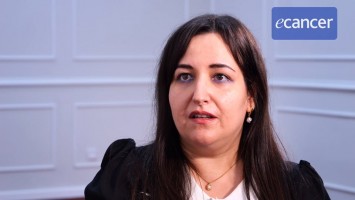War on Cancer
Preventing cancer in the EU through legislation, education and taxation
John Ryan - Health and Food Safety Directorate General, European Commission
It’s very important that we try and prevent as much disease as possible and cancer is a very good example. This year we celebrated thirty years of Europe Against Cancer. Cancer was the first European level activity in the field of public health and it was chosen really because it impacts so many of the population and also because one in three cancers can be prevented. So it’s one of those diseases where, by changing lifestyle, by improving information, you can reduce the cancer burden. A good example of this would be in the field of smoking where the European Union has developed over the years quite a strong legislative package on the prevention of smoking. This covers, for instance, the determination of the standards for tobacco products but also a complete ban on tobacco promotion and advertising in Europe. So throughout the 28 member states we now have a situation where we have a standardised approach to tobacco products but also to tobacco advertising and sponsorship. This goes even further than that because we have developed joint actions or joint activities on smoke-free environments, indoor environments, smoking in the workplace for instance, recommendations to member states on providing smoke-free environments but also, very importantly, helping people who are addicted to smoking how to stop smoking. I think that’s a very important part of the strategy. Of course cancer is very often linked, or lung cancer is very often linked to smoking and if you can actually reduce the number of people taking up smoking then in the years to come you will see a substantial reduction in lung cancer.
What other potential initiatives are there, aside from those looking at tobacco use?
Another example I could give you, perhaps, which has also been quite successful is the idea of screening. Because of course the idea is that if you can determine a cancer, if you can identify a cancer early on in its development, then you have a much better chance of a successful outcome. At the European Union level we chose three population-based cancer screening recommendations for colorectal cancer, for cervical cancer and for breast cancer. In these three areas we’ve tried to help the member states to introduce population-based screening programmes. We’re now working towards quality accreditation and quality guidelines because it’s not just enough to do the screening but you also have to make sure it is done according to certain quality standards and that there’s a follow-up which is appropriate. If we can roll this out across the member states and make sure that all the member states have similar systems in place with similar quality assurance systems then that’s also a strong contribution to reducing the burden of those three cancers.
In terms of tax policy and regulatory regimes, where has the EU been most successful?
Tax policy is dealt with on a national level so basically the member states decide which is the appropriate level of taxation. But they have signed up to an international convention which is the International Convention on Tobacco Control which is developed by the World Health Organisation. All of the member states have signed this and the European Union has signed and one of the objectives of this convention is to make sure that there’s a heavy pressure of taxation on tobacco products because taxation is recognised as being one of the most effective methods of controlling tobacco consumption because you increase the price.
Does the EU consider how much revenue would be lost if people were no longer smoking, due to the tax on tobacco?
We don’t put a price on people’s lives and if you had a cancer, if you had a lung cancer, you wouldn’t like to think that somebody was calculating the price of your life. Those figures were actually developed by the tobacco industry and they’re very often thrown out to us and they say, ‘Well you’re going to save because people will die earlier.’ When you have a relative or even if you’re sick yourself from a cancer the last thing you want to hear is that it’s going to save the state some of your pension contributions because you’re going to die early. So this is not an equation which we like to include. All I can say is that lung cancer is one of the most expensive cancers to treat, therefore if we can reduce the burden of lung cancer we’ll also increase the sustainability of our health systems. This is an important point because one of the problems we have in the European Union, because of the economic pressures we’re under, is to ensure the sustainability of our health systems. So anything we can do to prevent disease, whether it’s cancer, whether it’s diabetes, whether it’s obesity, whether it’s cardiovascular disease, all of these things can be prevented to some extent and therefore we’re trying to encourage member states to increase the efforts on prevention. 97% of the national health care budgets are spent on healthcare and 3% are spent on prevention, that includes vaccination by the way. So the balance is wrong there somewhere if we’re spending so much on care and so little on preventing disease.
What does the future hold?
In terms of the future I’d just like to say that over thirty years we have seen a convergence of national cancer plans across Europe. But clearly this is not enough; in each generation you have to develop new tools and new approaches. Therefore I’d like to say that we’re not just looking backwards but we’re trying to look forward to see what are the challenges, particularly from a new configuration of member states where we have a large number of member states now in Central and Eastern Europe which have different types of diseases and different types of lifestyles. One of our challenges is to try to move policy making away from the traditional approaches to see what are the new challenges, particularly taking account of different cultural situations and also the financial situation which I mentioned to you earlier on which is putting pressure on everybody.








